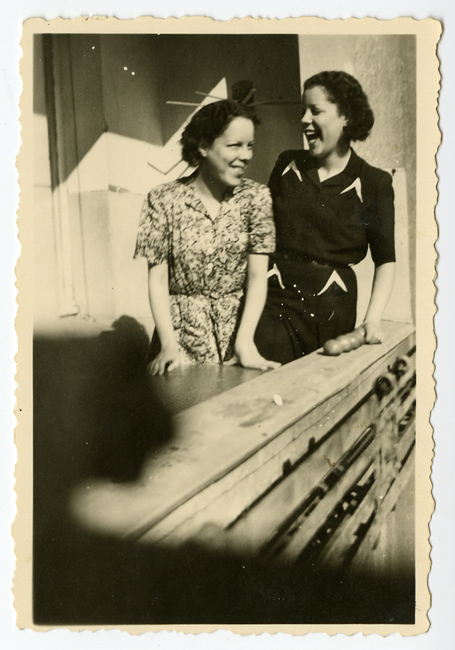This week on Those Who Were There: Voices from the Holocaust, we’re listening to the story of Annelies Bernstein Herz and her twin sister, Marianne, who were among 1,700 German Jews who survived the Holocaust by posing as non-Jews in Berlin. Known as “U-boats” in the slang of their time, the sisters existed “submerged on the surface” of everyday life, engaged in a constant struggle to evade the state surveillance apparatus of Nazi Germany.
Born in the East Prussian city of Königsberg in 1922, Annelies and Marianne Bernstein had a happy childhood. Their father was a respected banker, and the small Jewish community was economically comfortable. However, the Nazis were popular in East Prussia even prior to Hitler’s rise to power, and antisemitism was widespread. One year before Hitler’s election in 1933, Annelies’ happy life was shattered when her father was accused of financial irregularities and took his own life.
Deportations of German Jews “to the east” began in October 1941. In the intervening decade, the Nazi grip on German Jewry had steadily tightened. Annelies and Marianne had moved to Berlin, where there were still over 70 thousand Jewish residents. They were forced to work in an armaments factory, and although they were denied the mask and protective equipment that German laborers received, their value to the war effort resulted in reprieves from deportation. Finally, in late February 1943, the Jewish armaments workers were all rounded up in what came to be called the Große Fabrik-Aktion. Many workers killed themselves; others, like Annelies and Marianne, disappeared and became U-boats. They were nineteen years old.

Through numerous instances of ingenuity, grit, and luck, Annelies and her sister obtained documents that identified them as Christians with the surname Stein. They were able to secure ration cards and pass inspections, and even managed to get ahold of permits that allowed them to travel by train and work. At the same time, they were constantly on the move and frequently homeless, and they were made doubly vulnerable by their status as women. On one occasion, Annelies’ Jewish identity was discovered by a male coworker, who then sexually assaulted her. During her interview in 1991, Annelies spoke plainly about her struggle to find a safe place to abort the resulting pregnancy.
Listen to this story in Annelies’ own words in the latest episode of Those Who Were There: Voices from the Holocaust. Subscribe to the podcast on Apple Podcasts, Spotify, or Stitcher.
